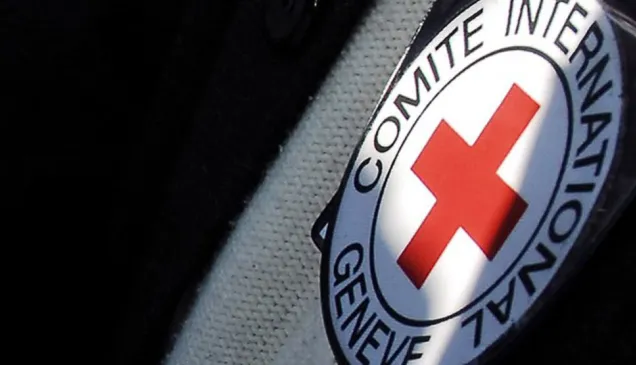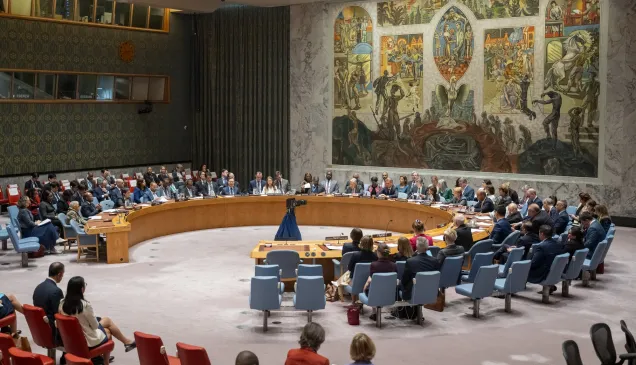United Nations, General Assembly, 69th session, Sixth Committee, items 82 of the agenda, statement by the ICRC, New York, 9 October 2014.
Thank you, Mr Chair, for giving the International Committee of the Red Cross (ICRC) the opportunity to address this important item.
The rule of law encompasses judicial institutions and normative frameworks that should be implemented at all times. In armed conflict, upholding the rule of law strengthens the effectiveness of international humanitarian law (IHL), which governs such situations. Respect for IHL not only has an impact on saving lives and reducing suffering, but also gives authorities the necessary platform on which to rebuild communities shattered by violence following the end of hostilities.
States have the primary responsibility to respect and ensure respect for IHL. This requires them to develop clear normative frameworks and strong judicial mechanisms that include accountability measures, so as to prevent and punish serious violations of IHL. As this forum is aware, to have greater impact, such action needs to be undertaken already in peacetime. Based on State practice that the ICRC has collected, compiled and shared, through its publicly available databases on national implementation and customary IHL, it is encouraging to note the continuous progress made towards this objective. States have taken a number of measures to ensure that national legislation and civilian and military judicial systems remain aligned with IHL and related norms that protect those affected by armed conflict.
In this regard, it is important to include a range of safeguards to ensure that all persons deprived of their liberty are protected from arbitrary detention and denial of their fundamental rights and freedoms. Such safeguards include regulatory frameworks, such as inspection and complaint mechanisms, as well as judicial guarantees in conformity with IHL and relevant international law. This approach also has a definite and practical impact in preventing enforced disappearance and ensuring access to justice for persons deprived of liberty.
In accordance with the mandate entrusted to it by States, the ICRC contributes to the development, implementation and promotion of IHL. Whereas the primary role rests with States the ICRC supports State authorities in their endeavour to ensure that the protections contained in IHL norms are given effect to the fullest extent possible. While the adoption of domestic legislation and related measures is an important first step towards upholding the rule of law, it must be followed by extensive awareness-raising efforts to translate knowledge into appropriate behaviour. Therefore, the ICRC, at the invitation of States, organizes and participates in programmes aimed at audiences with a direct bearing on ensuring respect for IHL and other applicable norms, such as the armed forces, law-enforcement agencies, civil servants, the judiciary and parliamentarians. The ICRC specifically recognizes the important contribution made by judges in this context and is planning to organize an expert consultation to further support their role.
The efforts of national IHL committees to raise the profile of IHL issues are worth noting. Established by 106 States, these bodies play a crucial role in framing a comprehensive national response to IHL issues by bringing together various State agencies, including the judicial sector, and civil-society. All efforts to build national capacity must integrate local legal and institutional traditions. We would like to emphasize the important role played by our partners, the National Red Cross or Red Crescent Societies, in supporting the efforts of their public authorities to promote the implementation of IHL.
Strengthening the rule of law is part of a wider system to create an environment conducive to protecting and ensuring respect for people’s lives and dignity in all situations, including when they are affected by violence. The ICRC reaffirms its continuing commitment to work closely with States and other parties concerned by providing, at their request, legal advice and technical support. Although much progress has been made on the normative front, enhanced efforts are still needed to translate legal measures into effective protections. This will further expand the reach of the rule of law to all situations where respect for human dignity is most threatened.



